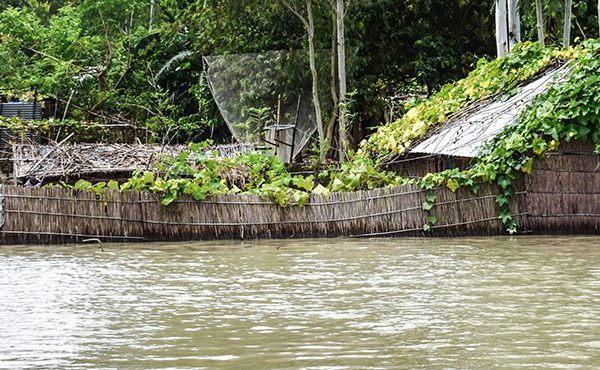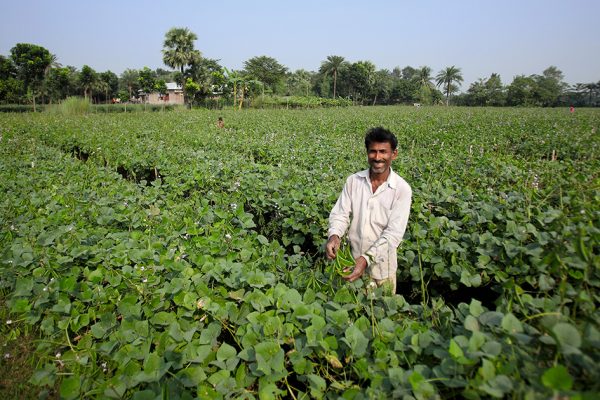Liberia’s crops against the rebellious weather
Reading Time: 2 minutes
The Earth is getting warmer. The most vulnerable groups need to be equipped with the right tools to build resilience – but how?
As the scorching month of July 2019 finally ended, it left behind its debut as the hottest month in world history. July also introduced itself in Liberia as the rainiest month on record.
Although slightly different, the worldwide weather patterns observed during the same month are intense enough to demonstrate the various trends of flipped and flickering switches across the Earth. We can’t deny the extremities of climate change anymore, and the developing countries are more prone than ever to the negative impacts of the climate’s burning rage.
In the context of developing countries like Liberia, 90% of agricultural output depends on seasonal rainfall patterns. Being a doormat to the capricious African weather patterns, Liberian food productions are heavily subjected to adverse environmental stressors. Reports of drying swamps during dry seasons and increased flooding during the rainy season (June-September) threaten the crop production and food security of the entire nation.
BRAC in Liberia had recently re-enacted and implemented some of the most appropriate approaches for tackling financial crises through a EU-funded project, Pro Act 2015, and the booming concept of climate-smart agriculture was no exception.
The whole counteractive scheme had first identified the crops as well as the participants most affected by the seasonal patterns, to understand their level of environmental vulnerability. This was crucial to know if an entire intervention was to be made in the name of resilience.
5,200 Liberian smallholder farmers were then identified and trained on climate-smart agriculture technologies and practices under the EU funded project. Varieties of stress tolerant seeds were provided and concepts of crop rotation, and elevated seed bedding were introduced to negate runoff, soil erosion and any other possible effects that disturbed Liberia’s environment and ecosystems.
BRAC’s climate-smart agriculture technologies ensured to promote the right kind of adaptation techniques for conservation and resilience. Canals were cleaned out for draining and ditches were developed for harvesting the storms of torrential rainfall. Whatever extreme agricultural calamity the angry weather tried to impose on Liberia, the more amendments BRAC made through considerate environment-friendly techniques.
There are also certain instances to consider – especially when the weather patterns were simply not in favour and stress tolerant seed varieties just did not suffice. This had inspired the training of homestead development to the smallholder farmers for kitchen gardens, poultry rearing and fruits as a nutritious alternative and diversified income.
Even if the project’s mitigation efforts are momentarily successful, Liberia is still at the mercy of the climate’s bitter resentment. A slight sunny day could start prolonged droughts if we aren’t careful enough. Rising to the community level, 20 community-based organisations took to this initiative and were trained to spread weather updates and precautionary measures to community members and farmers, so that they could plan their precious cultivations accordingly.
Global climate change and the lack of its awareness are noted as the prime factors that are contributing to food crisis right now in many developing countries. Awareness activities will further enhance the community’s understanding of climate change, better equipping them to adapt to its impacts. Harvesting rainwater during dry seasons and creating momentary employment during the lean season (June-September) not only are enough to sustainably adapt but also raise awareness in communities about climatic variation and extreme weather patterns. It is highly encouraged that governments and other NGOs replicate these climate smart and resilience-building activities to shine more light on our warming and withering Earth.
Md A Saleque is Advisor, Agriculture, Food Security and Livelihood Programme. BRAC International
Sadaf Nahyaan is Intern, Agriculture, Food Security and Livelihood Programme, BRAC International





